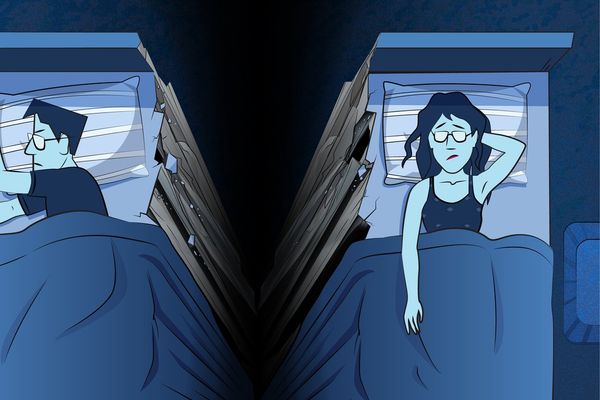We've been learning more and more about the importance of sleep on our overall health. When we don't get enough sleep, we increase our risk for things like high blood pressure, diabetes, heart disease, and depression. But a new study published in the peer-reviewed journal Science also found that sleep may help clear the brain of toxins that play a role in Alzheimer's disease.
The new study suggested that electrical signals, known as slow waves, appear just before a pulse of fluid washes through the brain, presumably removing toxins associated with Alzheimer's. The finding also suggests that people might be able to reduce their risk of Alzheimer's by ensuring that they get high-quality sleep. It's not just about the hours of sleep logged.
This research is important because studies show that people with Alzheimer's often have sleep problems. And there's growing evidence that people with sleep problems are more vulnerable to Alzheimer's.
But what's affecting our sleep in the first place? Why aren't we getting the rest we need? According to a recent HealthyWomen survey—in partnership with Prevention magazine, and health care communications agency GCI Health—stress is a major causes of sleep deprivation for women. Of the 3,000 women we surveyed, 72 percent said stress is a reason they are not sleeping well.
We took a deeper look at what's causing women stress and discovered that family, household clutter or projects, finances, and job demands were at the top of the list. To help address these common stressors, HealthyWomen reached out to experts for tips on how to simplify these stressors—READ those tips here!—so we can finally get the rest we need for our overall health.
As you manage your stress, so you can get a better night's sleep, also take a peak at these secrets from good sleepers.







